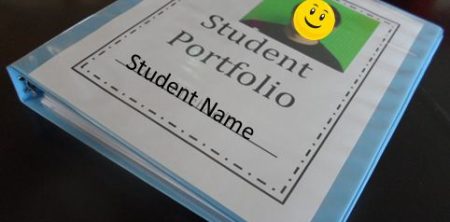Introduction
The traditional report card has long been the standard method of communicating student academic performance to parents and students. However, educators and researchers are increasingly recognizing the limitations of this one-dimensional approach to student assessment. This comprehensive exploration delves into innovative alternatives that provide more holistic, meaningful, and constructive ways of understanding and communicating student progress.
The Limitations of Traditional Report Cards
Traditional report cards typically reduce a student’s complex learning journey to a series of letter grades or numerical scores. This approach presents several critical challenges:
Oversimplification of Learning: A single letter grade fails to capture the nuanced nature of student growth, learning styles, and individual progress.
Limited Feedback: Numeric scores provide minimal insight into a student’s actual understanding, skills, or areas for improvement.
Psychological Impact: Grades can create unnecessary stress, demotivate students, and reduce learning to a competitive exercise.
Comprehensive Progress Communication Strategies
- Narrative Assessment Reports
What Are Narrative Assessments?
Narrative assessments represent a qualitative approach to student evaluation, where educators provide detailed, descriptive feedback about a student’s learning journey. Unlike traditional grades, these reports:
Offer in-depth insights into student performance
Highlight individual strengths and growth areas
Provide context for academic and personal development
Key Components of Effective Narrative Assessments:
Specific observations of student learning
Detailed descriptions of academic progress
Insights into student’s approach to learning
Recommendations for future growth
Implementation Strategies
Structured Narrative Frameworks
Develop standardized templates that ensure comprehensive coverage
Include sections on academic skills, social-emotional development, and personal growth
Provide clear guidelines for teachers to write meaningful narratives
Technology-Enabled Narrative Creation
Utilize digital platforms that streamline narrative writing
Implement AI-assisted writing tools to help teachers craft more nuanced descriptions
Create databases of descriptive language to support consistent, meaningful reporting
- Portfolio-Based Assessment
The Portfolio Approach
Portfolios transform assessment from a snapshot to a comprehensive documentary of student learning. They provide a multi-dimensional view of student progress by collecting:
Academic work samples
Reflective writing
Project documentation
Skill demonstration artifacts
Benefits of Portfolio Assessment:
Holistic Representation: Shows growth over time
Student Engagement: Encourages self-reflection
Comprehensive Evaluation: Captures learning beyond traditional testing
Portfolio Implementation Model
Digital Portfolio Platforms
Cloud-based storage solutions
Easy sharing with parents and educators
Multimedia integration capabilities
Student-Led Curation
Teach students to select and reflect on their work
Develop metacognitive skills
Encourage ownership of learning process
- Competency-Based Progress Tracking
Defining Competency-Based Assessment
Competency-based assessment shifts focus from time-based progression to mastery of specific skills and knowledge. Key characteristics include:
Personalized Learning Paths
Mastery-Oriented Approach
Flexible Progression
Implementation Framework:
Skill Mapping
Develop clear, measurable competency standards
Create rubrics for skill assessment
Establish multiple demonstration methods
Continuous Assessment
Regular skill evaluations
Real-time progress tracking
Immediate intervention strategies
- Standards-Referenced Reporting
Beyond Traditional Grading
Standards-referenced reporting provides precise information about student performance relative to specific learning standards. This approach:
Clarifies exact areas of student proficiency
Provides targeted feedback
Supports personalized learning interventions
Key Elements:
Detailed standard-by-standard breakdown
Clear performance level indicators
Specific skill mastery descriptions
- Collaborative Assessment Conferences
Student-Parent-Teacher Dialogues
Collaborative assessment conferences represent an interactive approach to progress communication. These meetings:
Involve students directly in assessment
Promote transparent communication
Create shared understanding of learning goals
Conference Structure:
Student-Led Presentations
Students showcase learning achievements
Reflect on personal growth
Set future learning objectives
Interactive Feedback Sessions
Open dialogue between stakeholders
Collaborative goal setting
Supportive intervention planning
- Technology-Enhanced Progress Tracking
Digital Assessment Platforms
Modern technology offers sophisticated tools for comprehensive progress tracking:
Real-Time Progress Monitoring
Personalized Learning Dashboards
Predictive Performance Analytics
Technological Integration Strategies:
Learning Management Systems (LMS)
Centralized progress tracking
Integrated communication tools
Comprehensive data visualization
AI-Powered Assessment Tools
Adaptive learning recommendations
Personalized progress insights
Continuous performance analysis
Ethical Considerations and Challenges
Implementing Alternative Assessment Methods
While innovative approaches offer significant benefits, implementation requires careful consideration:
Challenges:
Teacher training requirements
Technology infrastructure
Standardization concerns
Equity in assessment
Mitigation Strategies:
Comprehensive professional development
Phased implementation
Continuous feedback mechanisms
Inclusive design principles
Conclusion: Towards a Holistic Assessment Ecosystem
The future of student progress communication lies in comprehensive, personalized, and technology-enhanced approaches. By moving beyond traditional report cards, educational institutions can:
Provide more meaningful feedback
Support individual learning journeys
Promote student engagement and motivation
Prepare students for complex, evolving learning environments
Key Takeaways
Assessment is a dynamic, ongoing process
Technology enables more nuanced progress tracking
Student involvement is crucial
Personalization is key to effective learning communication
Recommendations for Educational Institutions
Gradual Transformation
Start with pilot programs
Gather comprehensive feedback
Iterate and improve
Stakeholder Collaboration
Involve teachers, students, and parents
Create transparent implementation strategies
Foster a culture of continuous improvement
Invest in Professional Development
Train educators in new assessment methodologies
Provide technological support
Encourage innovative teaching approaches
Final Thoughts
The evolution of student progress communication represents more than a technical shift—it’s a pedagogical transformation. By embracing comprehensive, compassionate, and technology-enhanced assessment methods, we can create educational environments that truly support individual learning potential.

